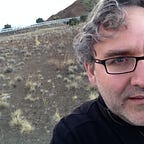Divine Philosophy and The Frankfurt School’s Critical Theory
“Philosophy is of two kinds: natural and divine. Natural philosophy seeks knowledge of physical verities and explains material phenomena, whereas divine philosophy deals with ideal verities and phenomena of the spirit.” ʻAbdu’l-Bahá, the son of the prophet founder of the Bahá’í Faith, explained at talk given during his 1912 visit to North America, “..divine philosophy — which has for its object the sublimation of human nature, spiritual advancement, heavenly guidance for the development of the human race, attainment to the breaths of the Holy Spirit and knowledge of the verities of God — has been outdistanced and neglected.”[1] He predicted that this outdistancing would have dire consequences for humanity.
ʻAbdu’l-Bahá’s use of what he termed Divine philosophy, brought a critical eye to the thoughts and assumptions of humanity; “ Old ideas and modes of thought are fast becoming obsolete. Ancient laws and archaic ethical systems will not meet the requirements of modern conditions,”[2] he explained. ʻAbdu’l-Bahá would go on to overtly challenge the institutionalized racism and sexism that permeated American culture at that time. For example, in a withering attack on the assumptions and cultural norms which he saw at the root of the impending violence inherent in western civilization he decried, “the breeding ground of all these tragedies is…
